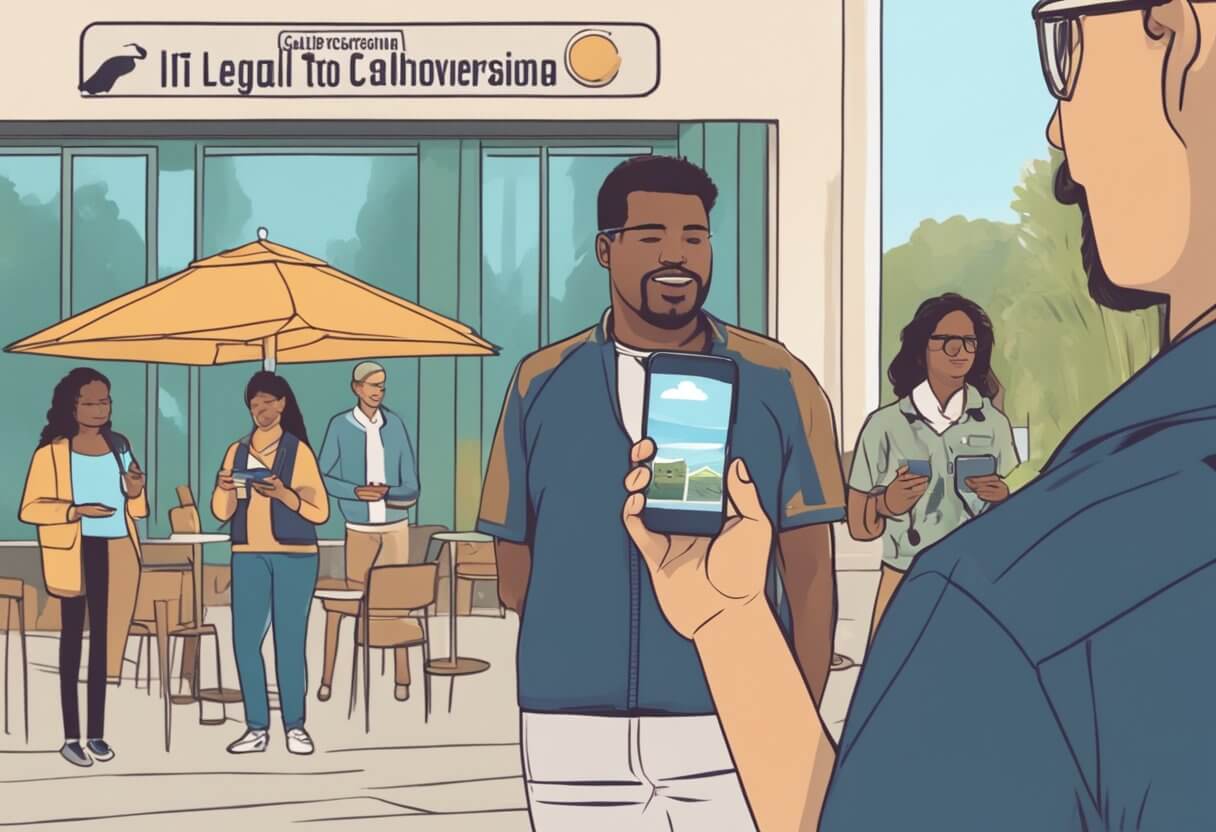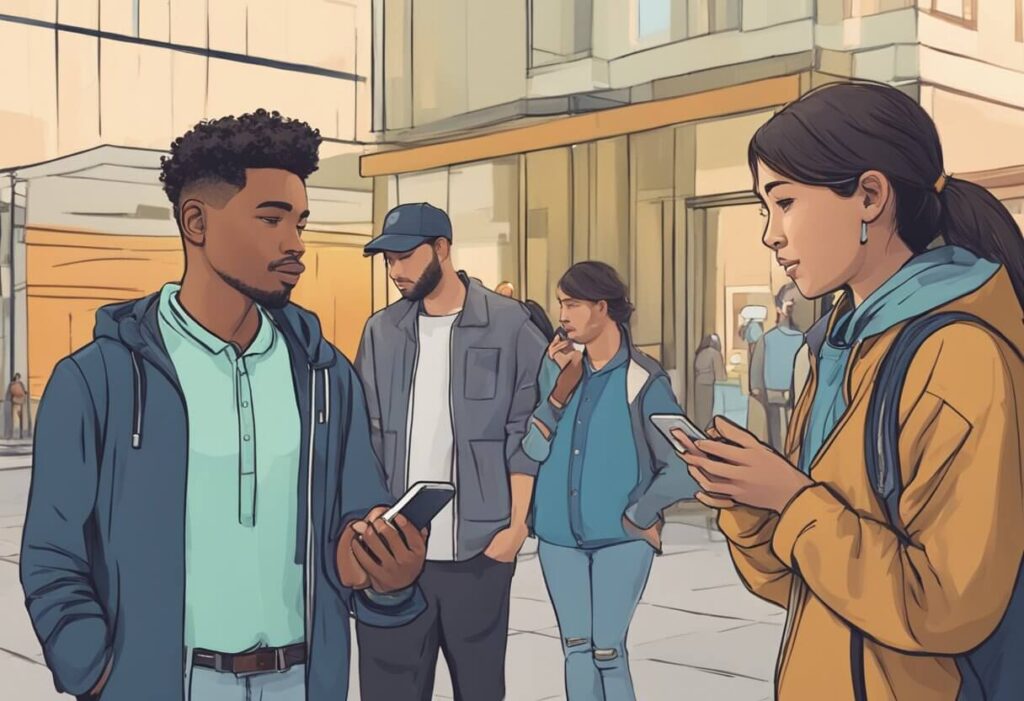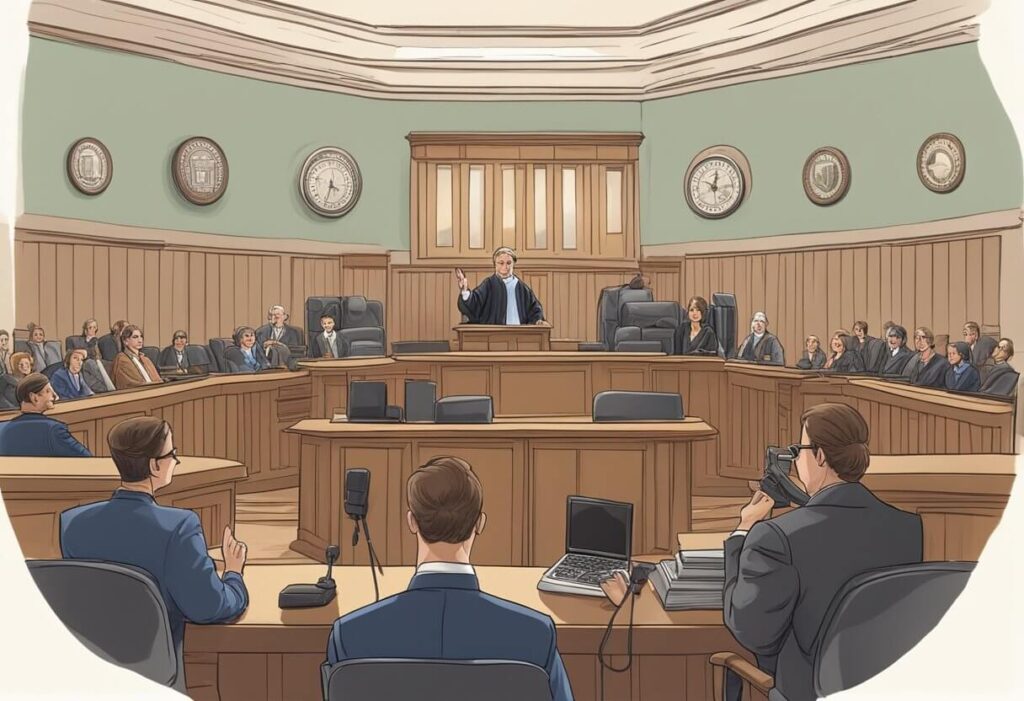Is It Legal to Record a Conversation in California?

Have you ever wondered if it’s legal to record a conversation in California without the other person knowing? Maybe you’ve been involved in a dispute with an employer or family member and thought recording a discussion could help prove your case later. Or perhaps you just like to record conversations to listen back to and improve your communication skills.
Whatever the reason, you need to be aware of California recording laws before pressing record. As a “two-party consent” state, California makes it illegal to record private conversations without permission from everyone involved.
The short answer is: no, you typically can’t record conversations in California without consent. But there are some exceptions, and the restrictions apply differently based on whether it’s an in-person chat or phone call.
This guide will cover:
- What California law says about recording conversations
- When it is and isn’t legal to record someone
- The rules around phone call recordings
- If illegal recordings can be used as evidence
- Penalties for breaking the law
- Exceptions to the consent requirement
- How to legally record conversations in CA
Understanding the details will help ensure you follow the rules and avoid facing hefty fines or jail time.
What Does California Law Say About Recording Conversations?
California certainly isn’t the only state with laws regulating the recording of conversations, but it does have some of the strictest.
California Penal Code 632 makes it illegal to use an “electronic amplifying or recording device” to intentionally record or eavesdrop on any “confidential communication” without consent from all parties involved.
This law, commonly referred to as California’s eavesdropping law or wiretapping law, applies to:
- In-person conversations
- Telephone calls
- Text messages
- Emails
- Other electronic communication
A “confidential communication” simply means any conversation where at least one party has an objectively reasonable expectation that it isn’t being overheard or recorded.
This hinges on the context and location of the discussion. A chat with your doctor behind closed doors would surely be considered confidential. But a boisterous debate with a group of friends around a restaurant dinner table likely wouldn’t meet the standard.
What Are the Punishments for Illegal Recording in California?
Breaking California’s recording law comes with stiff punishments if convicted:
- Up to $2,500 in fines
- Up to one year in county jail or state prison
Penalties increase substantially for repeat offenses:
- Fines up to $10,000
- Up to one year in jail
In other words, recording a conversation without permission in CA is not taken lightly!
When Is It Legal to Record Someone in California?

Given the harsh penalties, it’s essential to understand when California law permits recording conversations.
In short, it is legal to record in California if you get consent from all parties involved.
You must clearly notify everyone in the conversation that you intend to record and confirm that they agree to it. This consent can be given verbally but getting written permission is the safest approach.
Recording for Personal Use
If the recording is just for your own personal reference and won’t be shared or used for any commercial purpose, a simple verbal agreement from the other parties is likely adequate.
For example, you might record a work meeting to take better notes or have an elderly family member consent to recording a discussion about their care plans.
Commercial Use Requires Separate Consent
However, if you want to publish, broadcast, or otherwise use the recording commercially, additional consent specifically allowing that commercial usage is required under California Civil Code § 3344.
This means you can’t just record a podcast interview with someone then sell or distribute the recording without their permission.
What About Recording Phone Calls in California?
When it comes to recording phone conversations in California, the restrictions are even tighter.
California Penal Code 632.7 specifically prohibits recording any conversations involving cell phones, cordless phones, or landline calls where at least one party is using a mobile or cordless handset.
This applies even if the conversation meets the standard of “confidential.”
In other words, all parties must always consent before you can legally record any phone conversation in CA taking place on anything other than a traditional landline phone.
Can Illegally Recorded Conversations Be Used as Evidence in Court?

Here’s where things get murky.
In general, illegally obtained recordings violate the California wiretapping law and:
- Cannot be used as evidence in civil lawsuits
- Cannot be used against the person who was recorded without their consent
However, courts have discretion under the “Truth in Evidence” law to allow unlawfully obtained recordings to be used against the person who made the recording.
This means if you secretly record a conversation without consent, that recording probably can’t be used to help you win a lawsuit later.
But if the other party sues or presses charges against you, the illegal recording may be admissible in court against you.
The rules also differ for criminal vs. civil matters. Illegal recordings may get admitted as evidence in a criminal case if they meet certain hearsay exceptions. That bar is much higher for admission in civil lawsuits though.
The legality of using surreptitious recordings evidence ultimately depends on the judges’ interpretation on a case-by-case basis. Speak to an attorney if you have specific questions.
What Are the Penalties for Recording Someone Without Consent in California?
We touched on this briefly earlier, but let’s review the potential punishments if you violate California recording laws:
- For a first offense, you face up to $2,500 in fines and up to one year in jail
- Prior convictions for illegal recording or wiretapping bump fines up to $10,000 per violation
Judges have wide discretion based on the specific circumstances of each case. Factors like whether you released or sold the illegal recordings can increase penalties.
Bottom line: make sure to get consent before recording private conversations in CA unless you want to risk fines or imprisonment.
Are There Any Exceptions to California’s Consent Law?

While California recording law generally requires all-party approval, there are a few exceptions:
Law Enforcement: Police can record conversations without notification to gather evidence. Any recordings obtained this way can be used in court.
Public Places: Discussions held openly in public where parties could reasonably expect to be overheard are not protected.
Personal Safety: You may be legally able to record without consent if reasonably necessary to collect evidence of violence or serious threats to your safety. Consult an attorney.
Newsgathering: There may be some circumstances where journalists can record without consent to document newsworthy events. But restrictions still apply to confidential communications.
While the consent rule doesn’t always apply in those situations, it’s still advisable to notify involved parties when possible if recording.
Following the Law: How to Legally Record Someone in California
Given the complexity of California recording laws, following best practices is critical to ensure you don’t end up with legal woes.
Here are some tips:
Ask first. Always notify everyone involved before recording a conversation and get their unambiguous consent.
Inform people upfront how the recording will be used. Be transparent if you ever intend any commercial usage.
When in doubt, don’t record. If you’re unsure whether a situation reasonably expects privacy, err on the side of caution. Or consult an attorney.
Submit proper requests to record court proceedings. Special rules govern recording in legal contexts like depositions.
Never record phone calls without approval. Get express consent before recording mobile or cordless calls.
Understand your rights. Be aware of when you can record based on exceptions like personal safety needs. But understand the risks too.
Conclusion: Be Careful When Recording Others in California
Hopefully this breakdown clarifies when it is and isn’t legal to record people in California. Given how Contextual some of these situations can be, it’s always best to err on the side of asking for consent whenever possible.
Secretly capturing private conversations or phone calls without permission can spur lawsuits or criminal charges. Tread carefully and consult experienced legal counsel with any questions on how California recording laws apply to your unique circumstances.
And if you believe someone illegally recorded you in violation of California Penal Code 632, an attorney can help assess your case and options for pursuing damages. Don’t hesitate to schedule a consultation.






